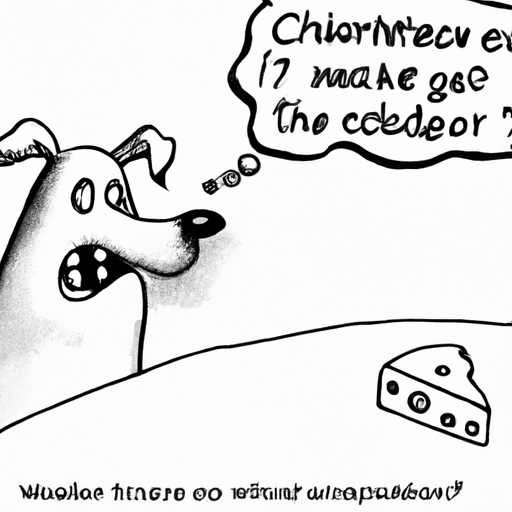Understanding Your Dog’s Dietary Needs
Firstly, it’s important to know that your dog’s dietary needs differ greatly from your own. Dogs evolved as carnivores and while they can tolerate a certain amount of non-meat foods, their bodies are not designed to digest some types of food effectively. This includes dairy products such as cheese.
The Lactose Issue
The primary reason why dogs can’t have cheese is due to lactose. Lactose is a type of sugar found in milk and other dairy products. When consumed by dogs, they often struggle to break it down due to their lack of the necessary enzyme, lactase. This can lead to several digestive problems such as:
- Nausea
- Bloating
- Gas
- Diarrhea
Not all dogs are lactose intolerant, some can handle it better than others. But it’s best to be cautious and avoid giving cheese to your dog.
The Fat and Sodium Problem
Even if your dog isn’t lactose intolerant, cheese is still not a healthy choice. Cheese is high in fat and sodium, both of which can be harmful for dogs.
| Food Type | Fat Content | Sodium Content |
|---|---|---|
| Cheese | High | High |
| Dog Food | Balanced | Balanced |
Excessive fat can lead to weight gain and obesity-related health issues. High sodium intake may also lead to high blood pressure and heart disease.
Potential Allergic Reactions
Let’s not forget about the potential for allergic reactions. Like humans, dogs can also be allergic to certain foods. Cheese, being a dairy product, is a common allergen. Symptoms of a food allergy in dogs can include:
- Itching
- Swelling
- Difficulty breathing
- Vomiting
- Diarrhea
Safe Alternatives to Cheese
Cheese can be tempting to use as a treat or training reward due to its strong smell and taste. However, there are plenty of safe alternatives available:
- Carrots
- Apples
- Blueberries
- Cooked chicken
- Sweet potatoes
Always remember that treats should make up no more than 10% of your dog’s daily caloric intake.
Frequently Asked Questions
Q: Can my dog eat cheese in small amounts?
A: While some dogs can tolerate small amounts of cheese, it’s generally best to avoid it due to the potential health risks.
Q: What should I do if my dog accidentally eats cheese?
A: Monitor your dog closely for any signs of discomfort or illness. If symptoms persist, contact your vet immediately.
Q: Are there any types of cheese that are safe for dogs?
A: Non-fat cheeses like mozzarella or cottage cheese can be less harmful, but they should still be given sparingly.
Q: What other human foods should I avoid giving my dog?
A: Other potentially harmful foods include chocolate, onions, garlic, grapes, and foods containing the artificial sweetener xylitol.
Remember, when it comes to your dog’s diet, it’s always best to consult with a veterinarian. They can provide guidance based on your dog’s specific health needs and conditions.



